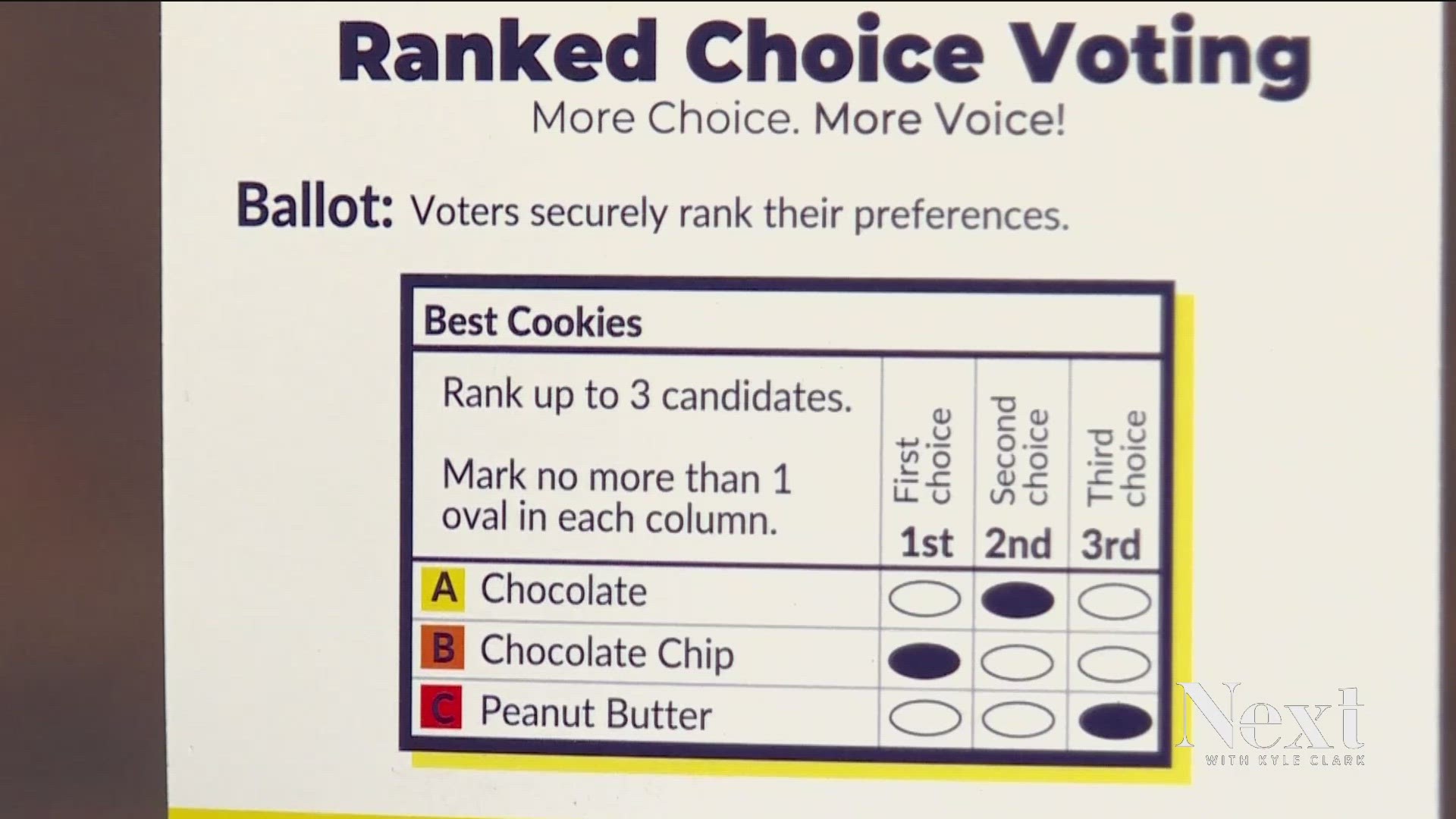DENVER — What is your cookie of choice?
And if you can't get that one, which type would be your pick second?
That's the idea behind ranked-choice voting.
"If you're just ranking who you love, who you like, who you can live with, it's easier,” Linda Templin said.
She is the executive director of Ranked Choice Voting for Colorado, which is using this week's Denver election to promote ranked choice voting.
A runoff, scheduled for June 6, is now required for the mayor’s race and four council races because the top candidate in those elections did not get more than 50% of the vote the first round.
In ranked-choice voting, a voter bubbles in a choice for who they like first and continues ranking them all the way through. The candidate who gets the least support is eliminated, and the people who voted for that last place candidate get their second-choice votes counted.
That process goes on until somebody gets more than 50%.
"You know the election results without having to have a second election,” Templin said. "Rank the candidates in order of preference. You can rank as many or as few as you want."
Compare those instructions to the actual ballot for city council at-large this year, where voters were told to "vote for two."
Many did not follow the instructions, and thus, undervoted.
An undervote happens when a race is left blank on the ballot, or the voter did not choose enough candidates if race calls for more than once choice. In Denver’s race for at-large city councilmember, voters could choose two candidates because there are two at-large seats, but a chunk of voters did not follow the directions.
There were almost 93,000 undervotes, meaning almost 93,000 bubbles that could have been filled in that were left blank.
If there were that many undervotes in a scenario that requires voting for two, isn't ranked choice voting that much more difficult?
"Ranking your choices is easier than vote for two,” Templin said. "There's less mental gymnastics involved."
Denver city councilman Kevin Flynn has pushed back against ranked choice voting, saying other cities have examples where the ultimate winner still doesn't get 50% or more. And, if voters only pick two or three choices but it takes five or six to decide the winner, that voter may not have helped decide the race.
"I'm not looking for the cheapest way to elect a mayor. I'm looking for the best way,” Flynn told 9NEWS political reporter Marshall Zelinger.
Ranked-choice voting would not accelerate ballot counts because the more that gets printed on a ballot, the more time it takes to run each piece of paper through the computers.
Switching to a ranked-choice voting system would require a vote of the people. The city council could refer a measure to the ballot if it wanted, which depends on the makeup of the new city council. Or, citizens could collect enough signatures to get a measure on the ballot.
SUGGESTED VIDEOS: Full Episodes of Next with Kyle Clark

